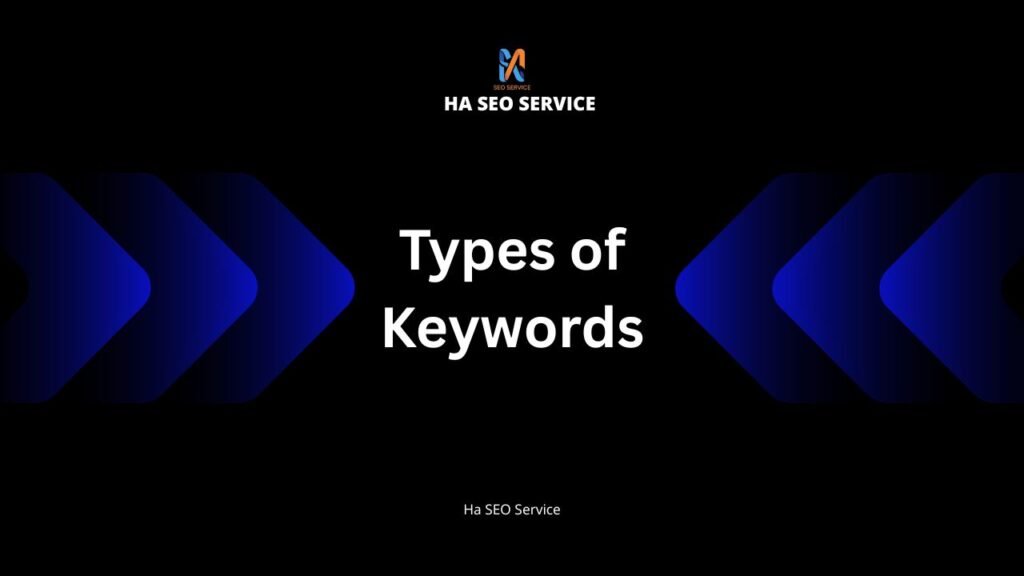
Understanding the types of keywords is the first step to building a powerful SEO strategy. Every search query tells a story—whether someone is seeking answers, comparing options, or ready to buy. By knowing how keywords differ, you can target the right audience at the right time. From short-tail terms that bring visibility to long-tail phrases that capture high-intent buyers, each keyword type plays a vital role.
Businesses that master keyword classification unlock more traffic, stronger search intent alignment, and higher conversions. Let’s break down every keyword category you need to know for smarter optimization in 2025 and beyond.
Search engines increasingly reward content that matches user intent. Knowing which keyword category fits each stage of the user journey ensures maximum relevance. Let’s explore all keyword types and how to use them effectively.
What Are Keywords in SEO?
Keywords are the search terms people type into Google or ask via voice search. They reflect needs, questions, and buying decisions. Correct use of keywords supports higher search engine results pages (SERPs) rankings and stronger visibility.
Marketers classify keywords to understand searcher behavior. By grouping terms, businesses align content with intent and goals. Classifying keywords supports contextual relevance and helps balance awareness, engagement, and conversions in an SEO strategy.
Main Types of Keywords in SEO
The Types of Keywords fall into categories based on query length, intent, and purpose. Each category serves a unique role in a searcher’s path to conversion.
For example, some keywords target search volume, while others focus on conversion rate. A successful SEO campaign blends multiple types to cover all intent stages.
Short-Tail Keywords
Short-tail keywords are usually one or two words, like “SEO tools.” They bring massive traffic potential but face steep competition. These keywords dominate search volume but lack detail about user intent.
Brands often use short-tail terms to build awareness. They are useful for visibility but may not generate high click-through rate (CTR) or strong leads without deeper content support.
Long-Tail Keywords
Long-tail keywords are longer, like “best SEO tools for startups.” They target niche audiences ready for action. These terms deliver smaller traffic but higher-quality leads with clearer buyer intent keywords.
According to Ahrefs, 92% of keywords searched monthly are long-tail. Optimizing for these supports higher conversion rate and captures users with precise needs.
Informational Keywords
Informational keywords attract users seeking answers, like “what is SEO” or “how to rank fast.” These terms are perfect for educational blogs, tutorials, and FAQs.
Publishing content for informational keywords builds authority. It also earns backlinks and strengthens semantic search alignment. Example: HubSpot’s free guides leverage these keywords to attract millions of visitors.
Navigational Keywords
Navigational keywords occur when users look for a specific site, e.g., “YouTube login.” They often reflect brand awareness and loyalty.
Optimizing for these ensures customers find your official site. Monitoring branded keywords also protects traffic from competitors running targeted ads.
Transactional Keywords
Transactional keywords show buying intent. Examples include “buy iPhone 14 online” or “book Dubai flights.” These terms often have the strongest link to revenue.
Optimized landing pages and CTAs help convert transactional searches. Pairing these with ranking factors like page speed and UX boosts performance.
Commercial Investigation Keywords
Commercial keywords highlight users comparing options. Queries include “best laptop under $1000” or “top CRM software 2025.” They sit between informational and transactional intent.
Publishing comparison tables, case studies, or reviews works best. These formats capture user intent and guide audiences toward informed decisions.
Other Advanced Keyword Types in 2025
Voice Search Keywords
Voice queries like “where can I find coffee near me” are growing. These match natural, conversational search intent and support mobile SEO.
Geo-Targeted Keywords
Location-based searches such as “dentist in New York” help local businesses. Optimizing Google Business Profiles maximizes visibility for local SEO keywords.
Seasonal Keywords
Examples include “Black Friday deals” or “Valentine’s Day gifts.” Seasonal keywords drive bursts of organic traffic during high-demand periods.
How to Choose the Right Types of Keywords
Selecting the right keywords requires a structured approach:
- Define goals (traffic, leads, or sales).
- Research audience and user intent keywords.
- Use SEO tools like SEMrush or Ahrefs.
- Analyze search volume and keyword difficulty.
- Test and refine based on performance.
| Keyword Type | Volume | Competition | Conversion | Best Use Case |
|---|---|---|---|---|
| Short-tail keywords | High | High | Low | Awareness, branding |
| Long-tail keywords | Low | Low | High | Niche targeting, leads |
| Transactional keywords | Medium | High | Very High | Product pages, e-commerce |
| Informational keywords | High | Medium | Low | Blogs, guides, education |
How HA SEO Service Helps You Master Keyword Research
HA SEO Service specializes in keyword research that drives growth. Our team blends advanced keyword classification with intent analysis to design winning strategies.
We map campaigns to customer goals, ensuring stronger conversion rate and sustainable ranking. From startups to enterprises, HA SEO Service helps businesses dominate SERPs with the right Types of Keywords.
Conclusion
Understanding the Types of Keywords is crucial for SEO success. Each keyword type supports a stage of the user journey—from awareness to conversion.
By blending different keywords, businesses achieve balanced visibility and growth. Start optimizing with purpose, and let data guide your content strategy for long-term gains.
FAQs
Q1: What are the main Types of Keywords in SEO?
The main types include short-tail, long-tail, informational, navigational, transactional, commercial, and advanced keywords.
Q2: Why are long-tail keywords important?
They target specific buyer intent keywords, driving qualified traffic and higher conversions.
Q3: How do transactional keywords help businesses?
They capture ready-to-buy audiences, making them essential for sales-driven campaigns.
Q4: Are informational keywords useful for conversions?
Indirectly, yes. They build authority and trust, which later drive conversions.
Q5: How often should businesses update keyword research?
At least quarterly, since Google algorithms and user behaviors evolve constantly.
